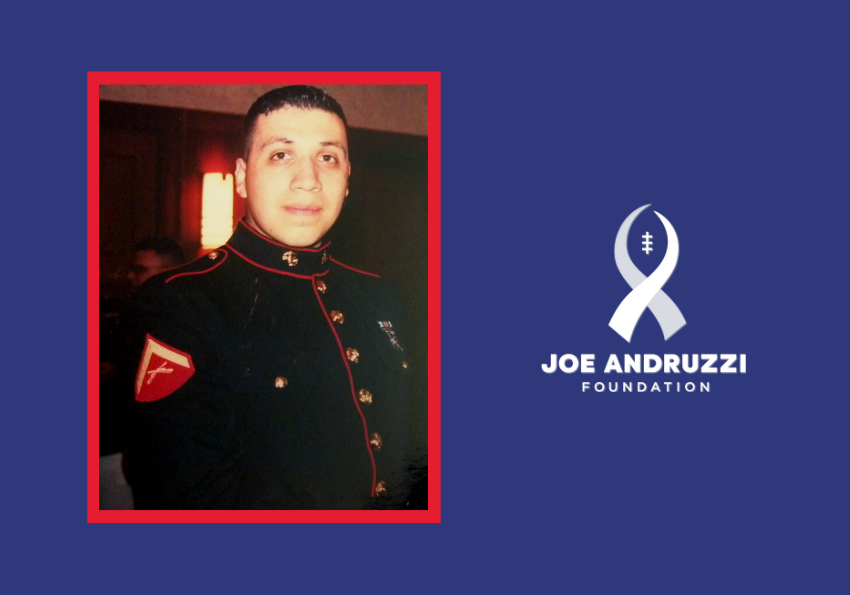Since he was a child, Adrian Velis admired the regal dress blues of his father’s military uniform.
Adrian’s father, a US Marine who had served his country in Vietnam, would share stories with him about his time as a marine and the fellow brothers with which he served. Even at an early age, Adrian understood the significance of the special attire; it merited attention, garnered admiration, and commanded respect. It was the appeal of that uniform – and what it stood for – as well as the admiration of his father, that led Adrian enlisted in the Marine Corp out of high school.
Of all of the branches of the military, Adrian admired the Marines most, believing they were ‘the toughest of the tough’. There was no question he wanted to be the best of the best as a US Marine. Serving for five years active duty and three as a reserve, Adrian travelled abroad to places halfway around the world: Southeast Asia, Australia, Japan, and the Middle East. While in service, he was also stationed overseas while serving in the Global War on Terrorism during wartime. He was also able to continue with his long-time love of boxing and served on the US Marine Corp boxing team.
After retiring from the Corp, Adrian came home with the goal of earning his college degree. However, managing the effects of PTSD after his return home was a barrier to maintaining focus in the classroom.
“I tried going [to college] right after I got out and couldn’t pay attention – I was too shellshocked,” Adrian remembers. After taking a two-year hiatus from studies, Adrian registered again for classes and set upon a path to a bachelor’s degree in government and legal studies – a milestone that would take eight years to realize.
“I didn’t think that I could do it, but I was determined to finish it. No matter what.”
Adrian finished his degree in 2018 and set his sights on yet another goal: a master’s degree in international studies. However, in the previous fall of 2017 as he began his final year of undergraduate studies, Adrian had begun experiencing bothersome GI issues and noticed a bloating in his stomach. He was feeling fatigued and run down, but he attributed his sluggishness to his rigorous boxing training, the demands of his college classes, and routine of his day job.
Finally, at the start of 2018, he visited a doctor who diagnosed his issue as a UTI and sent him on his way with antibiotics. After the symptoms persisted, he once again visited his doctor. After a preliminary series of tests, the doctor recommended a colonoscopy, but efforts to subsequently schedule an appointment for the procedure were thwarted: he was told that, in fact, there wasn’t an urgent need for the procedure. Adrian was 37 years old and considered “too young” for a colonoscopy.
Extremely disheartened and unsure of what to do, Adrian resumed his routine of boxing, studies, work, and home life.
Seven months later, as his GI discomfort and fatigue remained, Adrian sought out a new health system –one that advocated on his behalf for the procedure. The result of which was grim. Adrian was diagnosed with advanced stage 4 rectal cancer. As a result of a delayed diagnosis, the cancer had unfortunately spread to his lungs and liver. Chemotherapy treatment began immediately.
At the time of diagnosis, Adrian was the sole provider for himself and his wife, Candice. His diagnosis required that he shift from full-time to part-time, working only 2-3 days per week. Though Adrian was able to receive VA support for his cancer treatment and medical bills, the nearly year-long wait for SSDI assistance was grueling and made it difficult for Adrian and his wife to cover their everyday costs. Not only was Adrian trying to manage his treatment and accumulating household bills, he was still enrolled in school – working hard to maintain his studies and realize his dream of a bachelor’s degree. To try and make up for the lost income, he and his wife tapped into savings and played a budgetary chess game to strategically move and allocate available resources to ensure their most critical household needs were met.
Alongside veteran-focused support from the New Hampshire Easter Seals, in that time between diagnosis and receiving SSDI benefits, Adrian and Candice received financial assistance from the Joe Andruzzi Foundation to cover his phone/cable, car insurance and electric bills.
“We’re very thankful that we were referred to the Joe Andruzzi Foundation,” Adrian says. “I had no idea about [JAF]…that’s a blessing, especially at a time when we were in need.”
In January, Adrian received his last round of treatment. He was also turning the page on another chapter of his life in 2020: finishing up that master’s degree in international relations! He’s already set his sights on the next goal of a Ph.D. in public policy. He hopes that a position in diplomatic affairs will allow him to travel, as he once did while in service, and capitalize on his mastery of three foreign languages!
As the saying goes, “once a marine always a marine” and Adrian is a true veteran of that elite fighting force, “willing to engage in every battle.” He never let the disease dull his determination or obstruct the path to his goals. Adrian exhibited his military training, never giving up in the thick of the toughest battles – not even the battle against cancer.


